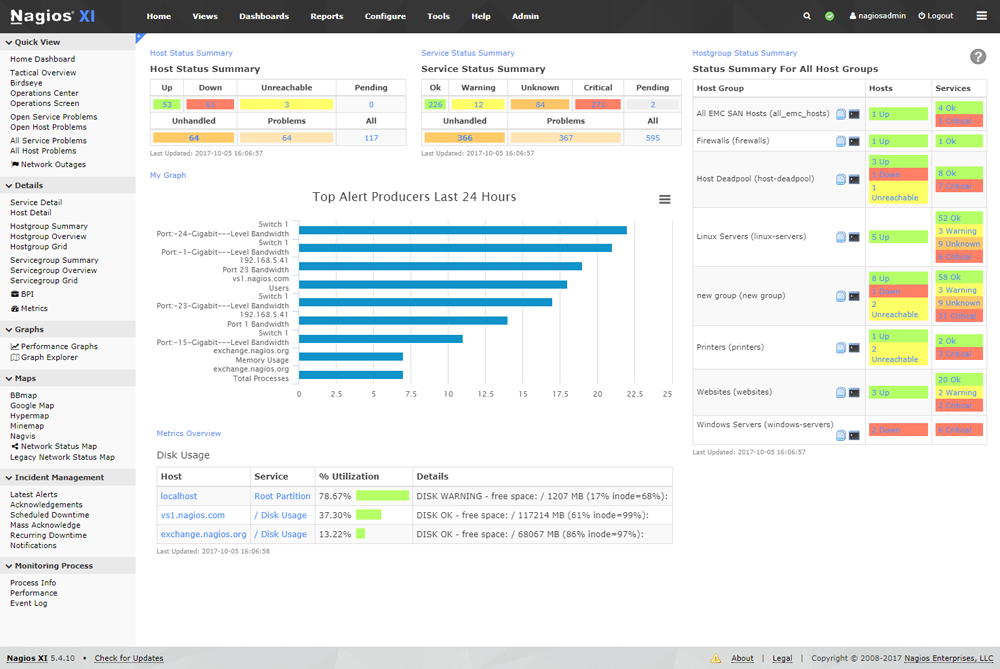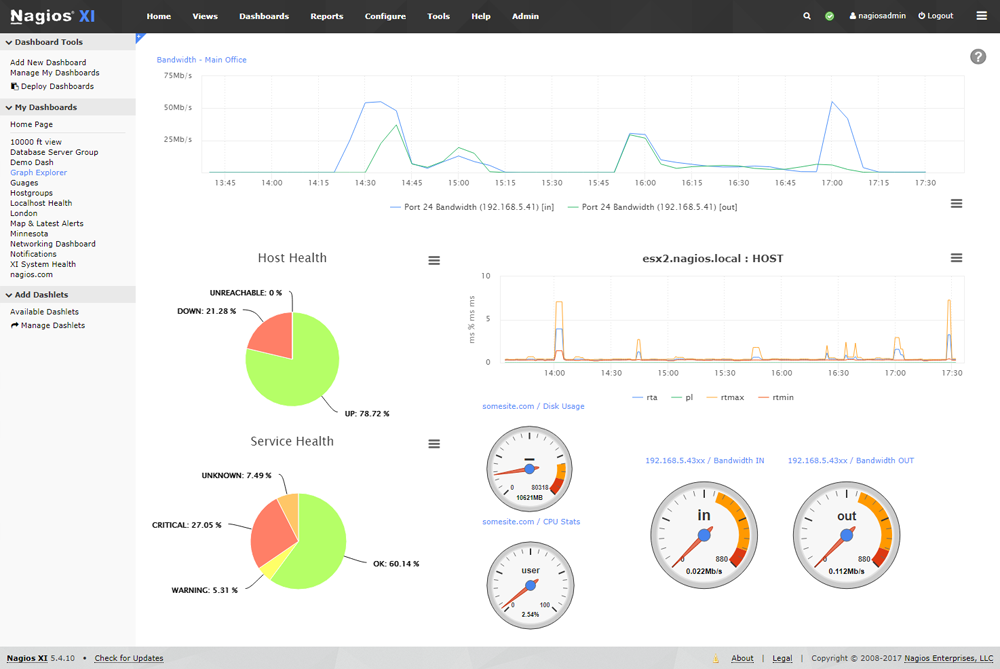Nagios – система IT мониторинга
 Nagios is a system for monitoring servers, services,
Nagios is a system for monitoring servers, services,
network protocols, network infrastructure.
The Nagios monitoring system, after a specified period of time, checks the availability of hosts, services and sends notifications to the mail, via SMS, or other self-written script. Also, Nagios has a cgi interface and using a web server (for example, apache), you can view the status of services, hosts, protocols, change notification settings (and some others), graphs (you also need a GD library), a map (tree) of monitoring objects.
Some features of Nagios monitoring
- Monitoring of network services (SMTP, POP3, IMAP, FTP, SSH, HTTP, NNTP, PING, etc.)
- Monitoring of server resources (CPU load, disk usage, etc.). Information from remote servers is collected using the add-on (agent) NRPE addon
- Enable users to design their own service checks
- Notifications when a host is unavailable and when access to it has been restored
- Automatic log rotation
- Web interface for viewing network status, notifications and monitoring history, log files, etc. It is also possible to save the results of checks in the mysql database using the NDOUtils addon add-on. This makes it possible to develop a new web interface and build your own charts
- Distributed monitoring, that is, monitoring from several servers, with a large number of hosts, and the results and statuses are sent to the main server
- Support for remote monitoring via encrypted SSH or SSL tunnels


Nagios is configured through the program’s configuration files.
In Nagios there are 2 methods for checking the status of services “Active Checks” (Active Checks) and “Passive Checks” (Passive Checks). Active checking is carried out directly from the server where the monitoring system is installed, using the logic of the Nagios program and its plugins for checking the status of services. Passive verification consists in the fact that the very check of the status of services, hosts, network protocols is carried out by an external program and not by the Nagios system itself, the results of the check are transmitted to the Nagios program.
Active Checks is a frequently used method of checking the status of the monitored object, which is carried out directly by The Nagios program. When installing the monitoring system, service status check plug-ins (nagios-plugins) are installed. Thus, with the help of the logic of the Nagios program and plug-ins, an active check of the status of the hosts is performed. For example, the http check plugin using the check_http command, checking the status of the FTP using the Nagios plugin and its command check_ftp etc. It is also possible to add your plugins checking any other necessary services. Active scan is performed regularly at intervals specified in the check_interval and retry_interval settings. It is also possible to run the scan at any time.
Passive Checks are a method of checking the status of monitored objects when Nagios does not perform the check itself. The scan is carried out by external programs and even from other servers, and the test result (status) is sent to Nagios to the program. Passive checking is also used in distributed monitoring. The external program checks the status of the host or service, writes the result to the so-called “external command file”, which is specified in the main configuration through the “command_file” parameter. Nagios then reads the “external command file” and queues the result of all passive checks for further processing. The queue is the same as that used to store the results of active checks. Thus, the status information from external programs can be integrated with Nagios. The ability for remote hosts to send the results of passive checks to the monitoring server is provided through the NSCA addon developer add-on.
Nagios Add-ons (Nagios Addons)
- NRPE — allows you to run plugins to check the load, disk space, and other parameters on a remote Linux/Unix series.
- NSCA — allows you to send the results of passive checks from remote Linux/Unix hosts to the Nagios daemon on the monitoring server.
- NDOUtils — allows you to save all the status information of the Nagios program in the Mysql database.
Where to buy? For purchase inquiries ask us